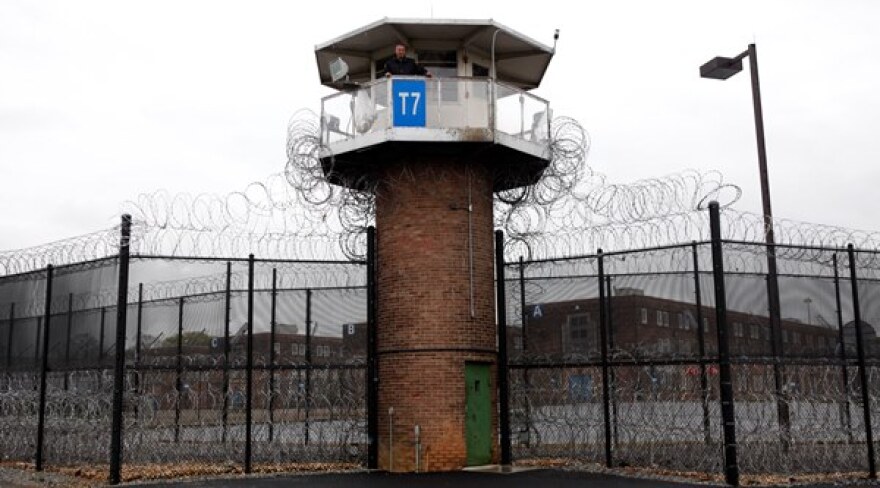On Wednesday, Pennsylvania’s Department of Corrections unexpectedly locked down the entire state prison system after a sudden rash of illnesses among employees, thought to be caused by accidental exposure to synthetic drugs.
The move may be unprecedented in the commonwealth—though it’s not the only state grappling with illnesses related to unknown substances.
The lockdown came the same day 29 people at an Ohio prison were treated for accidental drug exposure, and the same week five inmates in Arkansas died of suspected overdoses.
The specific incidents vary, but in all three states, officials have been largely unable to say for sure which drugs were involved, or how they actually got into the prisons.
In Pennsylvania, the Department of Corrections said the problem has been brewing for a while.
“There’s something out there that’s making its way into our prisons,” Spokeswoman Susan McNaughton said.
McNaughton said it’s not unheard of for prison staff to fall ill from suspected drug exposure. But this month, the numbers started climbing.
Since August 6th, 29 employees have gotten sick in 13 separate incidents at nine different prisons. And that number doesn’t include inmates who have been affected by the same substances.
McNaughton said inmates have definitely been getting sick, but couldn’t immediately provide relevant numbers.
“Our focus mostly at this point is on our staff,” she said.
It’s not clear why the situation worsened this month.
“It’s possible that it could be a specific bad batch of some sort of drug,” McNaughton said. “It seems to be kind of out in the western part of the state. It’s kind of focused out there.”
The department has sent drug samples to be tested, but so far only one has been identified--a “synthetic cannabinoid” often called K2.
That’s the same drug Arkansas corrections officials have said they suspect killed five of their inmates and necessitated treatment of another dozen.
McNaughton said officials don’t want to take any chances—so they’re suspending prison visits, halting most mail, and requiring employees wear gloves at all times.
Crucially, she said, there will be “no movement of inmates.”
“They’re not going to leave their housing unit to go to programs. They’re not going to leave their housing unit to go to education or to eat their means. Everything is going to happen in their cells.”
Pre-lockdown, the DOC had already begun to beef up drug safety protocols. Along with re-training staff on safety protocol and stocking up on equipment, officials are considering expanding K9 units, training their in-house firefighters to deal with hazardous materials, and using body scanners on visitors.
In a statement, Governor Tom Wolf—who is currently visiting Puerto Rico—said he had spoken to Corrections Secretary John Wetzel, and “they continue to work diligently to address the emerging issue of synthetic drugs in our prison system, and my office and I have been supporting his efforts.”
The State Corrections Officers Association, which represents around 10,000 officers around the state, was also supportive of the mass lockdown.
“Simply too many of our officers are becoming sick due to contraband being illegally brought into these facilities. We’re prepared to help our members who have been sickened — but we must put this dangerous problem to an end,” Association President Jason Bloom said in a statement.
Pennsylvania’s decision has already reverberated into other states.
Hours after the lockdown was announced, Maryland closed its prisons to all visitors as a precaution, and barred staff from opening any incoming mail.




